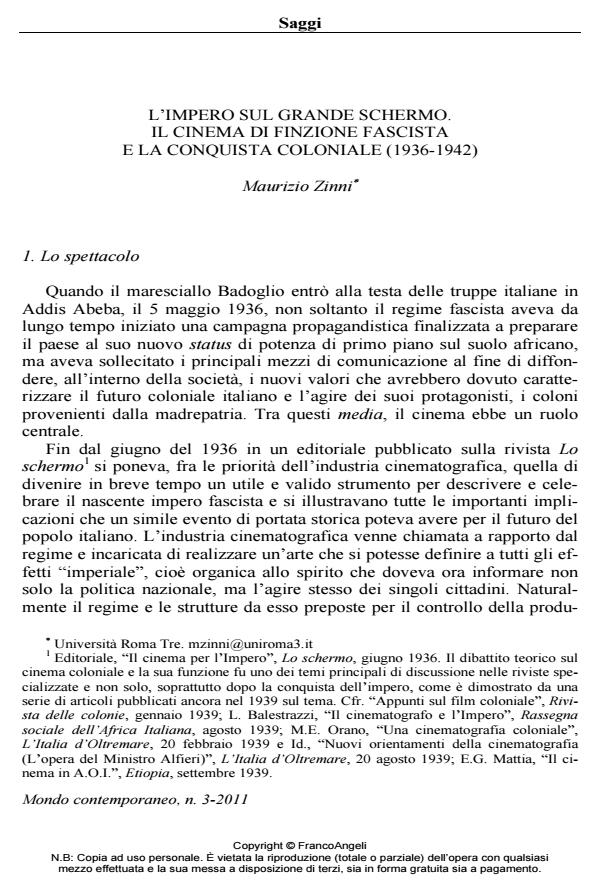The Empire and Cinema. Fascist Fiction Movies and the Colonial Conquest (1936-1942)
Journal title MONDO CONTEMPORANEO
Author/s Maurizio Zinni
Publishing Year 2012 Issue 2011/3
Language Italian Pages 34 P. 5-38 File size 373 KB
DOI 10.3280/MON2011-003001
DOI is like a bar code for intellectual property: to have more infomation
click here
Below, you can see the article first page
If you want to buy this article in PDF format, you can do it, following the instructions to buy download credits

FrancoAngeli is member of Publishers International Linking Association, Inc (PILA), a not-for-profit association which run the CrossRef service enabling links to and from online scholarly content.
After the Ethiopian war, the Italian cinema celebrated the men who built the Empire and their ideals. Between 1936 and 1939, six movies on these topics represented the main example not only of the fascist colonial propaganda, but also of the regime policy on cinema since the 1930s. Thanks to movies like Lo squadrone bianco, Il grande appello, Scipione l’Africano, Sentinelle di bronzo, Luciano Serra pilota, Sotto la Croce del Sud, Abuna Messias, or the latest Bengasi in 1942, we can define the perception of the African conquest by the Italian society, but also the topoi that influenced the imagination of the Italians in a profound and lasting way during Fascism and beyond.
Keywords: Cinema, fascism, colonialism, propaganda, empire, movie
Maurizio Zinni, L’impero sul grande schermo. Il cinema di finzione fascista e la conquista coloniale (1936-1942) in "MONDO CONTEMPORANEO" 3/2011, pp 5-38, DOI: 10.3280/MON2011-003001